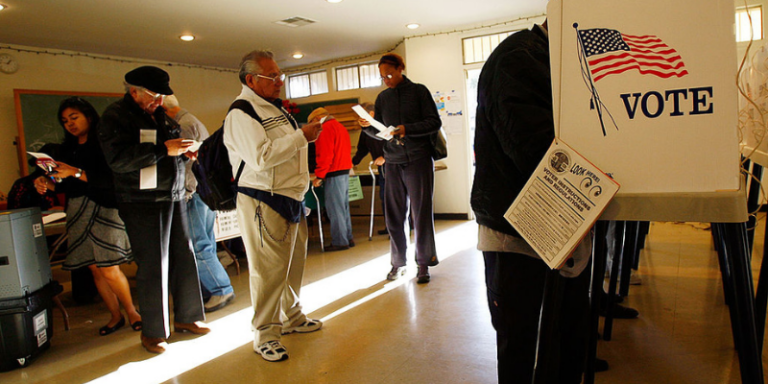Washington State Voters Worried About Ballot Privacy
Do voters have a right to keep their party affiliation private?
By: Kelli Ballard | March 2, 2020 | 433 Words

(Photo by David McNew/Getty Images)
The Washington presidential primary is set for March 10. The ballots have already been mailed out, and many voters are quite upset. They’re required to mark their party affiliation on the outside of the ballot – Republican or Democrat, of course, as there’s no longer an option for unaffiliated. Not only can pretty much anyone see which party people choose, but the information is considered public for 60 days.
When it comes to voting, how far does the right to privacy extend, and what measures are necessary to combat voter fraud? There’s privacy at the polling booths, with little curtains or boxed walls so that we can make our choices free from prying eyes. Do we also have the right to keep our choice of political party shielded from others? Washington state voters seem to think so.
Washington Secretary of State Kim Wyman announced that her office has been flooded with complaints:
“We’ve heard reports that people think their mailman or their letter carrier will throw those ballots away or that elections officials will throw them away and we’re assuring people that won’t happen.”
As assurances go, how can anyone promise such a thing? Will they have guards following the mail carriers to make sure they don’t toss offending ballots? The fear of losing a vote just because of your affiliation, especially for Republicans in such a liberal state, is not mere paranoia. Why is it necessary to put that information on the cover of the ballot? Why not inside, where only the election staff have access to it?
“I think the parties are worried about somebody coming over, crossing into their primary and trying to influence or affect it, but I don’t know how you would go back and prove John Smith really is a Republican and he crossed over and voted in our Democratic primary,” Wyman said. “I don’t know how you prosecute that.”
A primary is a party nomination process. On the state’s ballot, there are 13 Democratic candidates, as they were printed before the most recent contenders dropped out of the presidential race. On the Republican side, there are only two choices: President Donald Trump or a write-in candidate. The fear is that people will try to vote more than once or vote on a party they are not affiliated with to skew the totals.
The question we all should be asking here is: Why make it so public? If the prime concern is voter fraud, then why not keep it private and sealed, to be seen only by the eyes of officials?
















